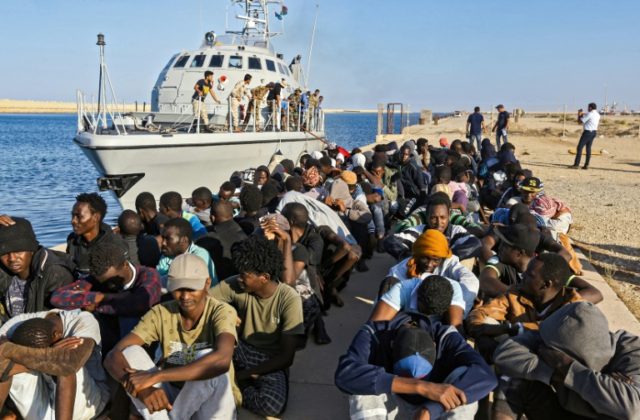A top UN official warned that Europe will face a new migrant crisis if the situation in Lebanon, a country that has been ravaged an economic crisis and internal strife, is not resolved before it becomes a failed state.
Jan Kubis, the UN’s top official in Lebonan and former Slovakian foreign minister, warned that the crisis in Lebonan has the potential to send new waves of mass migration to Europe, saying that politicians in the EU should work to stabilise the situation to incentivise “younger Lebanese to stay in their own country”.
“Lebanon is on the shores of the Mediterranean. Just look at what is happening now. Look at the waves of migration being generated by many other countries. And what is the destination? It’s Europe,” Kubis told Sky News.
“Politics is local and if you look at what is sometimes very obvious, the political discussions in a number of countries in Europe is their fear of another wave of migration. And they know very well that Lebanon is not around the globe.
“Politicians in Europe must understand that the more they will support real reforms in Lebanon, provided Lebanon will go into real reforms, this is better for them because they can maybe stabilise the situation to such an extent that it will give perspective to the younger Lebanese to stay in their own country,” suggested the UN official.
Mr Kubis said that the economic crisis has the potential of spiralling into a security crisis and that it would result in Europe having a combination of Syrians, who “are still in droves as refugees [here] but many others, starting with the Lebanese”.
Germany Again Deports Lebanese Convict After Asylum Attempt https://t.co/wgOrRZAVmC
— Breitbart London (@BreitbartLondon) November 23, 2019
Lebanon has been racked by civil unrest since October of last year when the government proposed a swathe of new taxes during an economic crisis, including taxes on gasoline, tobacco, and even on the WhatsApp messaging application.
The country has lost over 200,000 jobs since the start of the economic crisis and some ten per cent of all businesses in Lebanon have been closed.
The Lebanese pound has lost a third of its value, leading to a 9 billion pound fall in bank deposits in the first 11 months of 2019. Banks across Lebanon have also introduced capital flight restrictions on withdrawals, with some banks limiting withdrawals to just the equivalent of £150 every two weeks.
A new government, headed by Hassan Diab, a former professor, has been formed to confront the growing crisis. However, Lebanon’s foreign minister, Nassif Hitti, warned that the situation could lead the country down the road of becoming a “failed state”.
“We are very much aware of these very serious problems that the country is facing: an economic, financial crisis with strong social repercussions over time and definitely it could have political repercussions in terms of chaos or whatever could happen after,” Dr Hitti told Sky News.
“Imagine, God forbid, if we fall into a chaotic situation, what could happen, we have seen countries falling into that situation around us,” he warned.
Lebanese security forces detained at least a hundred demonstrators on Thursday as Lebanon’s long-running but mostly peaceful anti-government protests turned violent for the second night in a row. https://t.co/gjeukEEVhI
— Breitbart News (@BreitbartNews) January 17, 2020
Follow Kurt on Twitter at @KurtZindulka

COMMENTS
Please let us know if you're having issues with commenting.